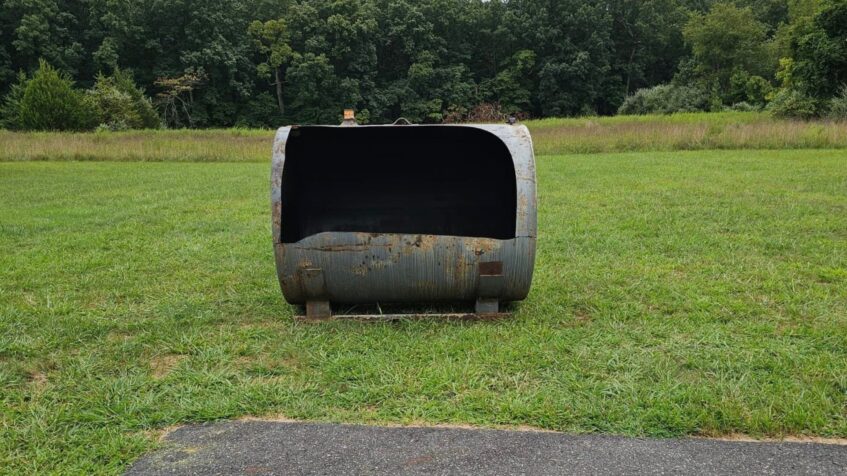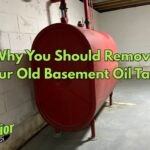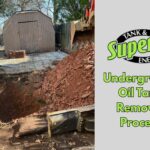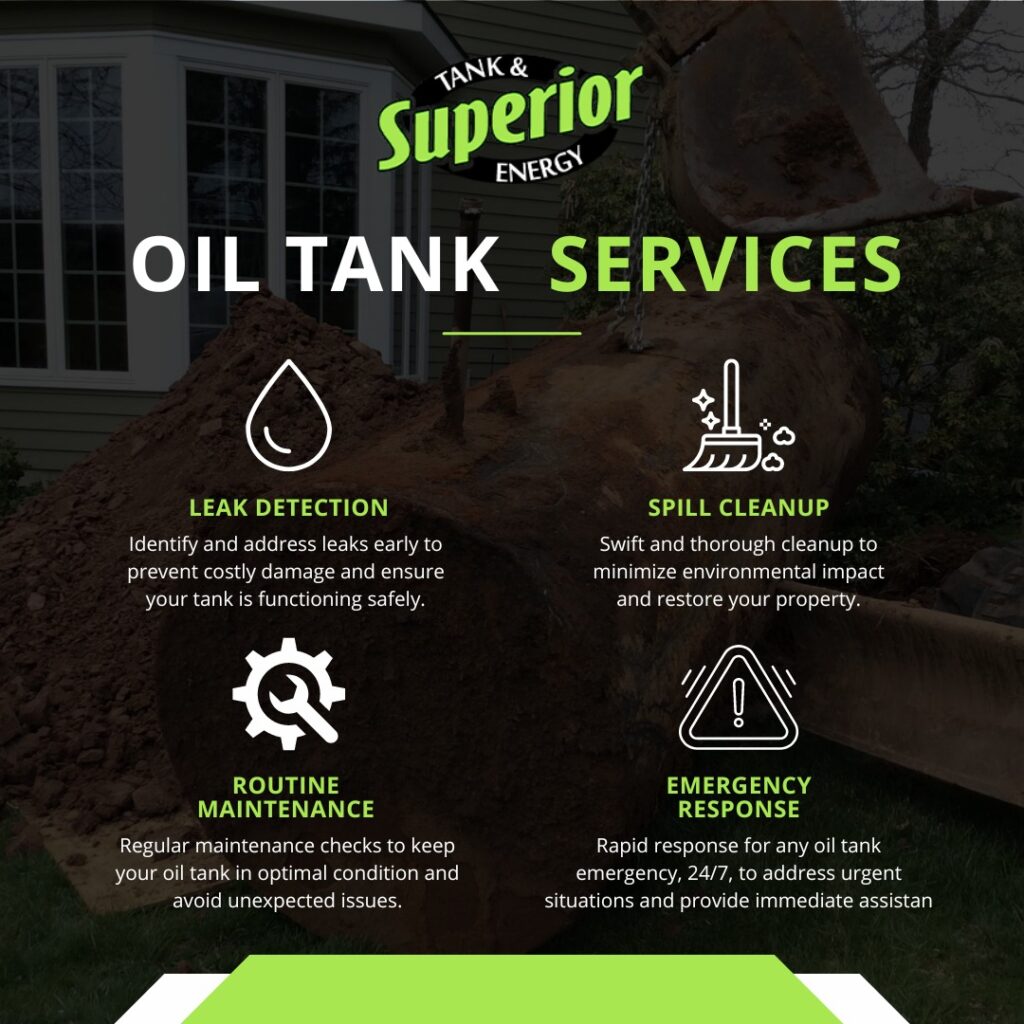- Posted by: Superior
- 0 Comments
Common Contaminants Found in Soil and How They’re Treated
Common Contaminants Found in Soil and How They're Treated
Soil contamination is a serious issue for homeowners, business owners, and developers. When hazardous substances infiltrate the ground, they pose a risk to human health, lower property value, and impact environmental safety. Unfortunately, soil contamination is more common than many people realize, especially in areas with aging infrastructure or industrial history. Understanding the most common soil contaminants and how to treat contaminated soil is key to protecting your land.
Superior Tank & Energy provides professional environmental soil testing and soil remediation services throughout Pennsylvania and New Jersey. Whether you’re concerned about a leaking oil tank or preparing to buy or sell property, our certified team delivers thorough risk assessments and safe, effective cleanup.
What Causes Soil Contamination?
Soil contamination occurs when harmful substances—often chemicals—accumulate in the soil. These pollutants can enter the ground through a wide range of human activities. Some of the most common sources include:
- Leaking oil tanks: Oil tank soil contamination is caused by old or damaged tanks that develop a leak. Underground tanks can corrode, releasing petroleum products into the ground.
- Industrial waste: Past industrial activity often leaves behind toxic residues like solvents and heavy metals in soil.
- Agricultural chemicals: Pesticides and fertilizers used for decades may build up in the soil and leach into nearby areas.
- Illegal dumping or accidental spills: Hazardous substances dumped without proper disposal procedures can seriously affect soil health and drinking water.
- Construction and demolition debris: Older building materials such as asbestos, lead, or other contaminants may remain in the soil.
Common Soil Contaminants
Understanding which contaminants are commonly found in soil is key to assessing the risks and determining the right course of action. These contaminants often originate from industrial activities, aging infrastructure, or improper waste disposal. Below are the most frequent culprits of contamination found in residential and commercial soil samples across Pennsylvania and New Jersey.
Petroleum Hydrocarbons
Petroleum contamination often results from leaking underground storage tanks (USTs) or spills during oil delivery. These hydrocarbons include substances like gasoline, diesel, and heating oil—all of which can pose serious health and fire hazards. Petroleum contamination is one of the most frequent types of oil tank soil contamination found on both residential and commercial properties. That’s why if you have an oil tank and suspect something is wrong, contact a trusted company for oil tank repair services.
Heavy Metals
Heavy metals in soil—such as lead, arsenic, mercury, and cadmium—are often linked to historical industrial use or old pesticide applications. These metals do not degrade over time and can be extremely toxic to humans, especially children. Soil remediation is essential to remove heavy metals from these contaminated areas.
Volatile Organic Compounds (VOCs)
VOCs in soil are typically found near industrial sites or former dry-cleaning operations. These compounds evaporate easily, allowing them to migrate through soil and into air and water. VOC exposure can cause respiratory and neurological issues. Soil vapor extraction and chemical treatments are often used to remove VOCs in soil effectively.
Pesticides and Herbicides
Used extensively in agriculture and landscaping, these chemical agents are among the most common soil contaminants in rural areas. Prolonged use without proper soil management allows these substances to persist long after application, impacting groundwater and ecosystems.
Asbestos and Construction Waste
When old buildings are demolished, construction debris like asbestos, treated wood, or lead paint can mix into the soil. These materials pose ongoing public health problems and often require professional excavation and disposal.
How To Treat Contaminated Soil
Once soil contamination is confirmed through testing, the next step is to determine the most effective way to clean it up. There is no one-size-fits-all solution—the right treatment depends on the type of contaminant, the severity of the pollution, and the specific conditions of the site. Here are the most common and proven remediation technology used today.
Excavation and Disposal
Excavation is one of the most direct methods used in soil remediation. Contaminated soil is physically removed from the site and transported to a licensed facility for proper disposal. This approach is often necessary when dealing with high concentrations of heavy metals or petroleum contamination.
Bioremediation
Bioremediation uses naturally occurring bacteria or introduced plants to break down pollutants. These soil microorganisms are most effective for treating organic contaminants, such as petroleum hydrocarbons, making it a sustainable option for sites affected by oil tank soil contamination.
Soil Vapor Extraction
Soil vapor extraction (SVE) targets volatile organic compounds (VOCs) in soil. A vacuum system pulls vapors from the ground, treating them above the surface. This method is often used in tandem with other techniques for thorough VOC remediation.
Chemical Oxidation
This advanced treatment involves injecting oxidizing chemicals into the soil to neutralize contaminants. It’s particularly useful for breaking down VOCs and some heavy metals. Chemical oxidation requires professional handling and precision to ensure effective results.
Encapsulation
In situations where removal is impractical, encapsulation seals the contaminants in place. This barrier remediation technique prevents further migration and exposure but requires monitoring and long-term management.
The Importance of Environmental Soil Testing
Environmental soil testing is crucial before any remediation work begins. This process involves collecting soil samples from strategic points across a site and sending them to a laboratory for analysis. Professionals test for a range of contaminants, including heavy metals in soil, VOCs, and petroleum hydrocarbons.
Accurate testing ensures that you understand the full extent of the problem and choose the most appropriate cleanup method. It also helps property owners meet environmental regulations and avoid fines or delays in development projects.
Superior Tank & Energy provides reliable, certified environmental soil testing for homes and businesses across Pennsylvania and New Jersey. Our team has the experience and tools to assess soil conditions and recommend solutions that keep your property safe.
When To Get Your Soil Tested
Soil testing isn’t just for large industrial sites. Both residential and commercial property owners should consider testing their soil if there’s any reason to suspect contamination. Here are the most common scenarios where soil testing is strongly recommended:
After Removing or Replacing an Oil Tank
If your property has recently undergone oil tank removal or replacement—especially if the tank was old, corroded, or leaking—soil testing is essential. Even minor leaks can lead to long-term petroleum contamination. It may not be immediately visible, but it can spread underground over time.
Before Buying or Selling Property
A comprehensive environmental soil test should be part of any property transaction, particularly for older homes or commercial sites. Buyers want to avoid inheriting hidden liabilities, while sellers can benefit from having clear documentation of a clean site.
If You Detect Strange Odors, Residues, or Staining
Unusual chemical smells, oily patches, or discolored soil can all be warning signs of contamination. These symptoms often appear near garages, storage areas, or sites with prior industrial use. Early testing can confirm whether action is needed. If you spot a leak in your oil tank, be sure to reach out for emergency oil tank services right away.
Following Construction, Demolition, or Chemical Spills
Large-scale renovations and accidental spills can introduce contaminants into the soil. If your property has recently undergone demolition or experienced a fuel or chemical release, soil testing ensures nothing harmful was left behind.
If any of these situations apply to you, it’s important to act quickly to minimize risks and protect your property.
Contact Superior Tank & Energy If You Suspect Contaminated Soil
Whether you’re concerned about a potential leak, preparing to develop land, or just want peace of mind, the team at Superior Tank & Energy is here to help. Our experts serve property owners throughout southeastern Pennsylvania and central and southern New Jersey with trusted soil testing and remediation solutions. We serve all of the following locations:
Pennsylvania
- Montgomery County
- Bucks County
- Berks County
- Delaware County
- Chester County
- Lehigh County
- Philadelphia
New Jersey
- Burlington County
- Camden County
- Gloucester County
- Mercer County
- Hunterdon County
- Monmouth County
- Ocean County
Contact us today to schedule your environmental soil testing or learn more about how we treat contaminated soil safely and effectively.
Frequently Asked Questions About Soil Contamination
What are the signs of soil contamination?
Common signs of soil contamination include discoloration, strange chemical or fuel odors, patches of dead vegetation, or visible oily residues. Sometimes, the signs are subtle, so testing is the only way to confirm contamination.
Is contaminated soil dangerous to humans or pets?
Yes, exposure to contaminated soil is dangerous to humans and pets. It can lead to health problems, especially in young children. Depending on the type of contaminants, risks may include respiratory issues, skin irritation, or long-term exposure effects from heavy metals or petroleum products.
Can an old oil tank contaminate the soil?
Yes, an old oil tank can contaminate the soil. Oil tank soil contamination is a leading cause of petroleum hydrocarbons in residential areas. Tanks that are old, rusted, or improperly decommissioned can leak and create serious environmental hazards.
How long does soil remediation take?
There is no standard length of time for how long soil remediation takes. The timeline varies depending on the type and severity of contamination. Simple excavation projects may be completed in a few days, while more complex cleanups involving VOCs or multiple contaminants may take several weeks or longer.
Categories
Recent Post
Archives
- December 2025
- November 2025
- October 2025
- September 2025
- May 2025
- April 2025
- March 2025
- February 2025
- January 2025
- September 2024
- September 2023
- July 2023
- May 2023
- March 2023
- January 2023
- November 2022
- July 2022
- May 2022
- March 2022
- January 2022
- November 2021
- September 2021
- July 2021
- April 2021
- December 2019








Recent Comments